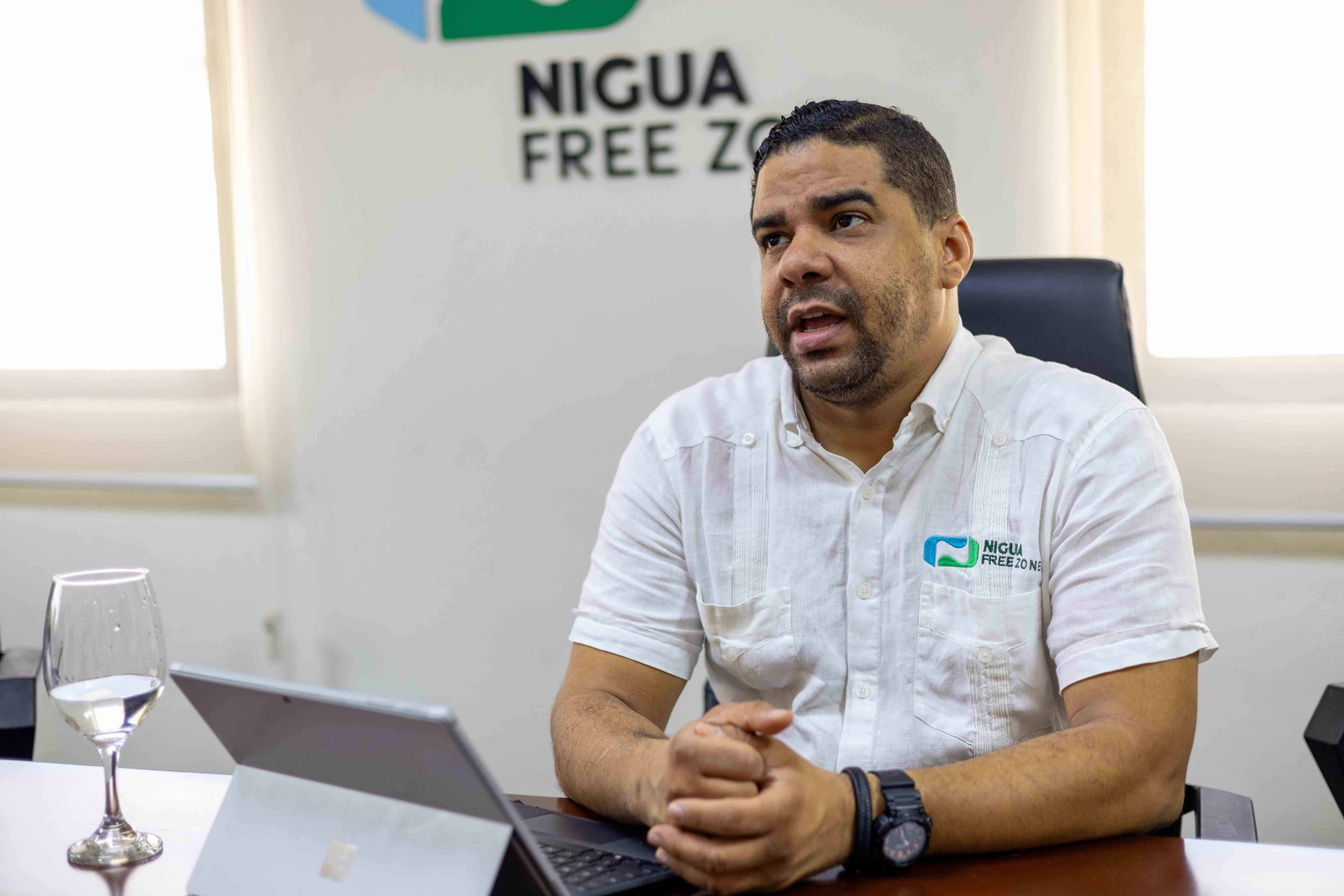
Nigua Free Zone announced an expansion plan that aims to double its exports and increase its workforce from 3,000 to 9,000 jobs over the next seven years.
Ebell de Castro, general manager of the park, highlights that this growth is part of a strategic vision that seeks to take advantage of the proximity to the United States, the main receiving market for products leaving the Dominican Republic.
“Currently, we are a private park in which about 17 companies operate, which represents a growth of 70% compared to three years ago,” says de Castro. This expansion will not only increase the industrial capacity from 460,000 to 1,500,000 square feet, but will also generate a significant economic injection into the community.
The estimated investment for the expansion of the park is 80 million dollars, with projections of exports that will reach 400 million dollars. This project will not only benefit Nigua Free Zonebut will also have an important social impact in San Gregorio de Nigua, a municipality in the San Cristóbal province.

“We are working under a model of business continuity plan. This model consists of developing resilient infrastructure and services that guarantee the operational continuity of the companies in the park, even in the face of natural catastrophes or adverse social situations,” the executive revealed.
He specified that the industrial warehouses They are designed to withstand phenomena such as hurricanes, and must undergo evaluations by institutions that certify their safety. “This provides peace of mind to our customers, ensuring that their operations will continue, regardless of the circumstances.”
Furthermore, the continuity plan not only covers the physical infrastructurea, but also aspects such as constant electricity supply. “We are connected to a 69,000 volt high voltage line, and we plan to interconnect to a second line to guarantee power in case of failures.”
He assured that this proactive approach “is essential, since it allows companies to operate despite adverse situations, providing confidence to investors. Currently, we are building a new ship of 60,000 square feet, which will be the largest in the park and will have a modern design.
Economic impact on the community
The Nigua free zone It not only focuses on industrial growth, but also plays a vital role in the local economy. It generates approximately 700 million pesos per month in payroll, benefiting thousands of families.
“We inject more than 700 million pesos, every month, in payroll to the community,” he told Free Diary the general manager of Nigua Free Zone, Ebell de Castro.
In addition, the park constantly participates in sustainability projects and in collaboration with polytechnic schools of the region to promote training in areas with high labor demand, such as the manufacturing of medical equipment.
Product diversification
Regarding production, Nigua Free Zone It is distinguished by the variety of products it manufactures.
In addition to medical equipment, the park produces chocolate, tropical juices, yacht electrical parts from recognized brands such as Yamaha and other industries, and also branches (wiring) for work vehicles such as tractors. This diversity not only increases the park’s competitiveness, but also contributes to the national economy.
Competitive advantages
The strategic location of the park, in the southern region of the country, less than 20 kilometers from Saint Dominic and just 15 minutes from a Haina port that handles 60% of the trade between the Dominican Republic and the United States, it is a great attraction for investors.
De Castro emphasizes that this reduces transportation costs and facilitates international trade, which is essential for the growth of companies that settle in the area.
Human capital formation
Nigua Free Zone is committed to the development of human capital. Through alliances with educational institutions, they seek to establish training programs that prepare young people for high-tech industries.
“It is essential to have a trained human capital“says de Castro, who also highlights that around 69% of the park’s employees are women, which “is very important because it is said that when women are heads of households, they make a much more stable economic contribution to households.” .
Concerns and opportunities
Despite the opportunities, de Castro expressed concerns about what was intended through the fiscal modernization bill, which on Saturday the president ordered withdrawn from Congress, of possible changes in the free zone tax scheme.
“Other countries in the region are offering attractive incentivesand it is crucial to maintain a competitive environment,” de Castro warned.
Training personnel, the country’s challenge to take advantage of demand for semiconductors
He said that the semiconductor industry It is one of the largest in the world, since many of the equipment we use, such as vehicles, appliances and computers, depend on microchips. This high global demand and production has led the United States to strive to recover some of its semiconductor manufacturing, which was previously moved to other regions.
He explained that after the pandemic, the United States experienced interruptions in the supply chainevidencing the importance of having local production of semiconductors, especially for industries such as the automotive industry.
Although the Dominican Republic currently does not produce semiconductorsthere are opportunities to integrate into component production stages. The United States is offering financing to companies that want to establish new manufacturing plants, which could benefit the region.
- In his opinion, to turn the Dominican Republic into a logistics and manufacturing center for technological equipments, it is essential to develop human capital.
“We are investing in infrastructure and services that meet the expectations of technology companies. However, the key is to have trained personnel, which implies improving basic education and graduating more engineers,” de Castro emphasized.
He said that, as the industries are automatedthe demand for engineering professionals will increase, so it is essential to motivate young people to pursue careers in this field, ensuring quality training.



